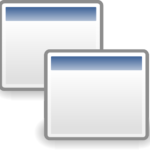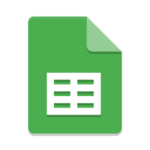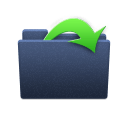 In the past, I’ve written about how radio DJs can create their own customized show prep service using RSS feeds. One of the big advantages of this is that you can include local sources, such as newspapers or bloggers, and pull them into an RSS reader.
In the past, I’ve written about how radio DJs can create their own customized show prep service using RSS feeds. One of the big advantages of this is that you can include local sources, such as newspapers or bloggers, and pull them into an RSS reader.
However, while local media publishers are likely to have RSS feeds for their website, many other local websites will not. The arthouse theatre showing the Three Stooges marathon or the legendary dive bar that books all the heavy metal cover bands may not have websites with RSS feeds. Without an RSS feed, if you want to check on what’s going on at these venues as part of your show prep process, you’re going to have to go to each of their webpages individually. How can you do this and keep the process manageable?
Here’s how:
1. Create a spreadsheet with a list of local venues.
 Create a spreadsheet containing websites for all of the key venues in the area. The columns in the spreadsheet might include:
Create a spreadsheet containing websites for all of the key venues in the area. The columns in the spreadsheet might include:
- Venue Name
- Website
- Contact Name
- Contact Email Address
- Facebook Page
- Twitter Page
- Instagram Page
- YouTube Page
- Event Listings URL
That last one is very important; we’re going to use it below. I also recommend creating a column for with a dropdown menu for the Type of venue (music, comedy, sports, theater, etc.). This allows you to filter the venues if you want, which is particularly helpful if you do a benchmark feature such as a Concert Calendar.
2. Use the Bulk URL Opener extension in your Chrome browser.
 Some web browsers, like Google Chrome, allow you to install extensions. Extensions enable the browser to do extra things. In this case, we’re going to install the Bulk URL Opener extension. It allows you to open a large number of URLs quickly. You can install it with a couple of quick clicks, then use it like this:
Some web browsers, like Google Chrome, allow you to install extensions. Extensions enable the browser to do extra things. In this case, we’re going to install the Bulk URL Opener extension. It allows you to open a large number of URLs quickly. You can install it with a couple of quick clicks, then use it like this:
- Filter your spreadsheet to only show venues of the type that you want.
- Highlight and copy all of the URLs in the Event Listings column.
- Open the Bulk URL Opener extension and paste the URLs in. Click the ‘Open All’ button.
- Go get a cup of coffee while you wait for the browser to open up all of the different tabs.
- Repeat the above steps for different types of events if you want.
Once you’ve got all of the websites open, you can quickly go through them and scan for any information you want to talk about on your radio show. Of course, this technique doesn’t just work for local venues. You can use it for any type of website that might be helpful to include as part of your show prep process.
Learn More
Earlier this week, I hosted a webinar on “Digital Tricks to Help Radio DJs Sound More Live and Local.” Check it out for more ideas on how you can keep your finger on the pulse of your local community:
- A Simple Digital Treat to Thank Your Radio Listeners This Thanksgiving - November 13, 2023
- Interview Questions When Hiring Your Radio Station’s Next Digital Marketing Manager - November 6, 2023
- A Radio Conversation with ChatGPT: Part 2 – Promotions - October 30, 2023





Leave a Reply